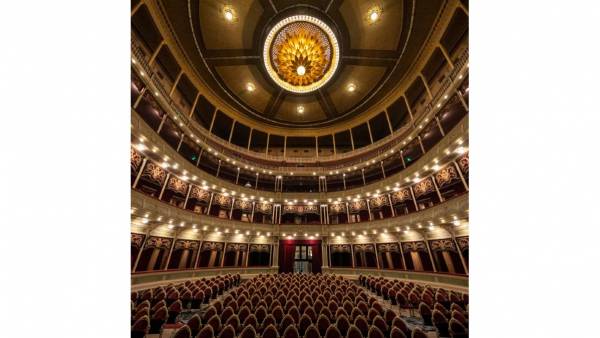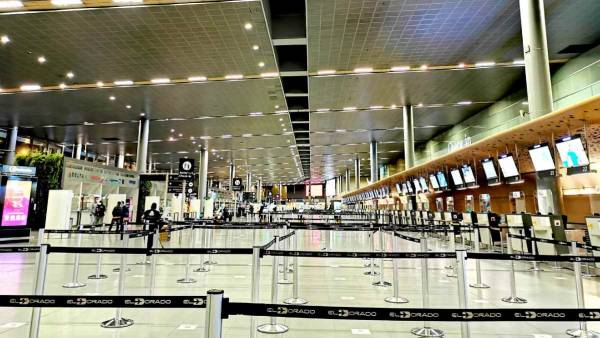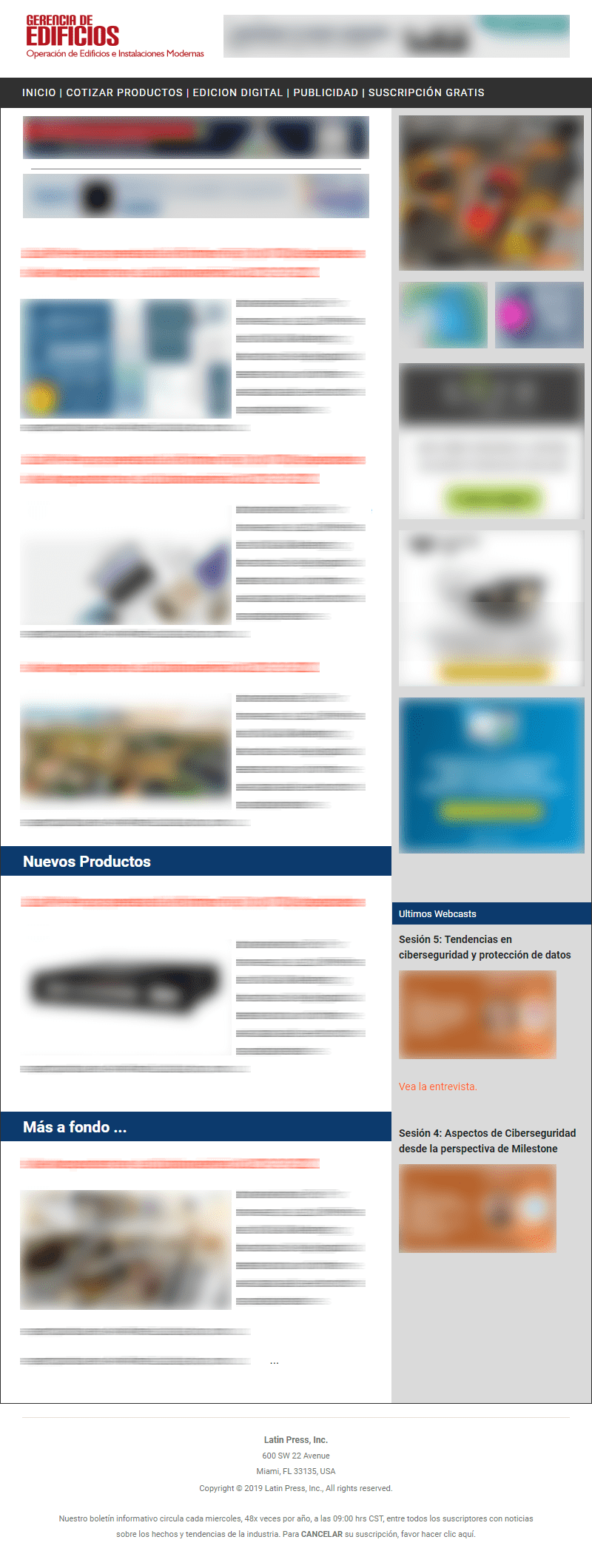 In addition to providing comfort and convenience, hotels have a great responsibility to their guests in the security aspect. Therefore, HOTEL MANAGEMENT inquired about some laws in force to regulate emergencies that may arise in these establishments and spoke with some hoteliers about the subject.
In addition to providing comfort and convenience, hotels have a great responsibility to their guests in the security aspect. Therefore, HOTEL MANAGEMENT inquired about some laws in force to regulate emergencies that may arise in these establishments and spoke with some hoteliers about the subject. By Duván Chaverra A. and Héctor Gómez Pérez.
The mother of a minor tells a Colombian newspaper that her son died in a hotel in her country, partly due to the lack of preparation of the establishment and its staff to attend emergencies, even more so if it is taken into account that it is a place where a guest can suffer an accident in any of the facilities, either inside a pool, in the room or in another area.
Her 11-year-old son was drowning while playing in a pool during the December 2009 holiday period, as he was suffering from epileptic episodes. The hotel did not have the necessary equipment or staff to take care of the emergency. In addition, the ambulance that arrived an hour after the fact also did not have the necessary implements to save the life of the child who finally died due to a bronco aspiration.
After the event, the mother only sent a message in which she invited the hotels to have all the necessary tools to help a guest and train the staff to have the basic knowledge to save lives.
This case and others that have been presented in hotels, led us to carry out an investigation in which we consulted some of the hotel associations in Latin America, as well as general managers of hotels, to know what type of regulations exist to regulate the emergencies that can occur in a hotel and how they comply with them.
We have the contribution of the Mexican Association of Hotels and Motels, Luis Fernando Toro, general manager of the Holiday Inn Express Medellín, Colombia, and who until recently finished his work as president of the Board of Directors of the Hotel Association of Colombia (Cotelco) Antioquia chapter; Wilson Camperos, head of security at the 101 Park House Hotel in Bogotá, Colombia; and finally we invited Ernesto Pischedda, general manager of the King David Flat Hotel in Argentina.
It is well known that hotels must not only ensure the comfort, recreation and rest of their guests to make their stay an unforgettable moment, they must also always keep in mind the safety of their visitors and staff.
In the different countries there are laws that are responsible for regulating the correct functioning of this type of establishments that above all have the responsibility of receiving a large number of people, which means greater risks of accidents. In general, requirements are established in the signaling of emergency exits, first aid equipment, fire detectors and fire extinguishers; in addition to always keeping in mind that there is a way to prevent emergencies in all cases.
This means that emergencies do not only happen in swimming pools and do not involve minors only. A fire, a work accident in any of the enclosures such as the kitchen, a machine room or gardens can also occur easily and for this the hotels must be well prepared.
Standards
Initially, Luis Fernando Toro tells us about the rules that exist in Colombia to regulate emergencies in a hotel: "The norm that regulates everything related to the prevention and attention of all types of disasters in Colombia arises from Law 46 of November 1988, which regulates in its organization and operation the National System for the prevention and attention of disasters. Similarly, Decree-Law 919 of May 1989 establishes that the main characteristic of this system is that it is decentralized and inter-institutional. To this end, governors and mayors must act in accordance with articles 60 and 61 of Decree 919/1989, which provide basic tools for the creation and definition of functions of regional and local disaster prevention and response committees."
In Mexico, for example, there is also the Official Mexican Standard NOM-07-TUR-2002, of the regulatory elements of civil liability insurance that must be contracted by providers of tourist lodging services for the protection and safety of tourists or users. And that it was approved in December 2002.
This standard aims "insurance, as a financial instrument of prevention and protection, constitutes a support for the promotion of national and foreign tourism, by providing an added value of security to the offer of accommodation and increasing the overall quality of services, as well as freeing service providers from problems arising from contingent events, creating awareness of prevention in the sector, and promoting internal savings," says a section of the Official Mexican Standard.
Meanwhile, Luis Fernando Nieto also assures that hotels in Colombia must implement emergency plans "which are established with the help of professional risk management companies and in most cases with the collaboration of fire centers and government secretaries. These emergency plans establish evacuation routes, signage to guide in case of evacuation; the head of the brigade and those responsible for each floor are appointed, who at all times have to wear the badge to be used in case of emergency and are responsible for the orderly evacuation of the person to a clearly established point. You must have flashlights, megaphone, communication radios, first aid kits and stretcher to proceed to timely care."
Security protocols
When consulting the two invited hotel managers about the security protocols of their respective establishment, both agreed that they are based on the Emergency Plan. For example, Ernesto Pischedda commented that it is a document of more than 100 pages that records aspects as relevant as: basic conditions and scope, complementary rules, emergency actions, internal communications, meeting places of personnel acting in the accidents, plans, etc.
For his part, Wilson Camperos, comments that in the Park 10 House Hotel the security protocols are recorded in two documents: the Emergency Plan (industrial security) and the physical security manual (physical security). In both cases these documents consist of an administrative component, a diagnostic phase (risk analysis and evaluation), an organizational phase and an operational phase (what to do before, during and after).
But what are the areas of a hotel most prone to an emergency? As Pischedda commented, "we don't have a sector that is more at risk or more vulnerable. We know that there are more critical spaces due to the lack of physical surveillance which are reinforced with electronic or remote means."
In that sense, Camperos said that "event areas are places where emergencies can occur more easily. Other areas considered critical are kitchens, engine rooms, fuel storage areas and boilers."
Are we ready?
Although emergencies come at the least expected time and places, it is important that there are plans and staff to attend to them in the hospitality business. The executives invited for the realization of this article have stated that their establishments are ready to face any event of these characteristics. For example, the King David Flat Hotel in Argentina has trained personnel dedicated to specific emergency activities, such as fire brigade, evacuation brigade, role coordinator and the health brigade that is responsible for providing first aid.
At the Hotel 101 Park House in Bogotá there is an emergency and contingency committee and the emergency brigades that are equipped, identified and trained. "The brigades are made up of people who want to belong to the group and have the basic profile (disposition, leadership, teamwork, physical and mental conditions), in addition to being in positions of critical location.
"All sectors are prone to improvement, so we are doing more and more drills and making corrections to the different roles. We consider being prepared to attend an emergency, we also have a protected area of medical emergencies (VITAL) for cases of guests or employees who suffer a contingency, "said Ernesto Pischedda.
Wilson Camperos said in this regard that "we are prepared for any eventuality, we comply with all the established law requirements and we have the approval of the fire department in organization for emergencies." He also highlighted as an aspect to improve the continuous training and the fact that it prevents, by the same corporate name of the company, to have all the employees in the trainings on the subject.
Security in high season
Luis Fernando Toro explains that for a season of high demand, hotels previously make sure that all the elements that have to do with security and emergencies work correctly.
"Hotels in seasons of high demand, in advance carry out preventive checks and every certain time of the fire systems, smoke detectors, check the evacuation routes so that they are clear and free of obstacles, as well as the extinguishers and other elements in order to ensure that they are in full operation. In the same way, the person is gathered and a simulation is made without involving the guests, verifying that everyone knows exactly their role in the attention of an emergency."
Finally, the manager of the Holiday Inn Express Medellín said that hotels are in the slogan of working to avoid as much as possible any tragedy within their facilities: "Every day there is greater awareness by all hoteliers and especially by large chains of the importance of the safety of their guests and employees and therefore strict reviews are given in terms of security. "
BOX
Hotel Insurance
Although hotel insurance is a fundamental requirement that is required of guests before entering the establishment, the managers themselves recognize that they scarcely inform the visitor about what it includes; and in the same way on few occasions the guest asks about it.
"Hotel insurance, understood as the one offered to guests, mainly contemplates aspects of attention to the person and the elements that said person brings with him such as jewelry, money, among other objects, which must be declared in advance, or deposited in the general box of the hotel, also assign safe deposit boxes in each room. Such insurance in most cases is not known to guests."

























Leave your comment